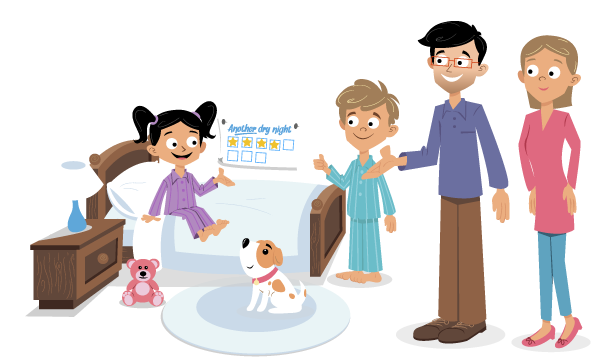Tips to stop bedwetting
Bedwetting can be successfully treated. However, there are also things you can do at home to help. These tips are also a useful way to involve your child and can help them overcome the bedwetting.
Help your child by trying these tips at home.
These tips are also a great way to involve your child and this may help them overcome bedwetting.


Read more

Read more

Read more

Read more

Read more

Read more

Read more
If you have specific questions or concerns, talk to your child's doctor, school nurse, health visitor or pharmacist.
Bladder and Bowel UK offer a confidential helpline. If you would like to speak to someone, email: bbuk@disabledliving.co.uk or phone: +44 (0)161 214 4591. You can also visit this website for more information: www.bbuk.org.uk/children-young-people/children-resources.
Support, information and resources are also available from ERIC, The Children’s Bowel and Bladder Charity: www.eric.org.uk and their freephone helpline: +44 (0)808 169 9949


This website is intended for UK residents only.
Job code: UK-MN-2300010 I Date of preparation: June 2023





